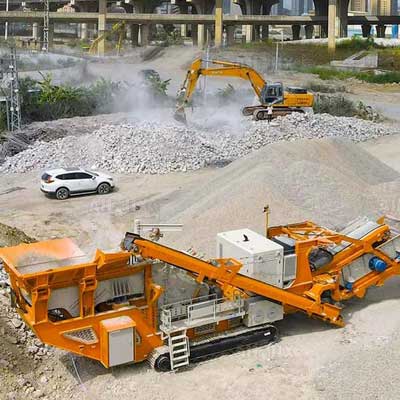


Learn how to calculate and shorten mobile crushing plant payback periods with expert financial and operational optimization strategies.
Investing in mobile crushing equipment represents a significant financial commitment for construction and recycling operations, making the payback period a critical consideration for business planning. Unlike stationary plants, mobile crushers offer unique advantages in operational flexibility and reduced transportation costs, but their higher initial investment requires careful financial analysis. Understanding the typical return timeline—and more importantly, the strategies to accelerate it—can transform this capital expenditure from a financial burden into a rapid profit generator.
The payback period for mobile crushing plants typically ranges between 18 to 36 months, though numerous variables can significantly shorten or extend this timeframe. Everything from equipment selection and utilization rates to operational efficiencies and market conditions influences how quickly the investment begins generating positive returns. By examining both the expected benchmarks and proven acceleration strategies, operations can make informed decisions that optimize their financial outcomes while maximizing the plant’s productive potential.
The typical payback horizon for a mid-range mobile crushing plant falls between 24-30 months under average operating conditions. Basic jaw crusher configurations with single screening stages often achieve recovery in 18-24 months, while more sophisticated multi-stage plants with cone crushers and advanced screening may require 30-36 months. These timelines assume 70-80% utilization rates and stable aggregate markets with consistent demand for processed materials.
Geographical considerations profoundly influence financial return expectations. Regions with infrastructure booms or natural disaster reconstruction often see payback periods compressed to 12-18 months due to increased material demand and higher processing rates. Conversely, areas with saturated markets or limited construction activity may experience extended timelines of 36-48 months, emphasizing the need for localized financial analysis before investment decisions.
The single most significant factor in payback acceleration remains achieving high utilization rates. Plants operating at 85%+ capacity can reduce payback periods by 30-40% compared to those running at 60% capacity. This requires strategic contract planning, preventive maintenance scheduling during natural downtime, and versatile equipment configurations that can process diverse material types across multiple projects.
Mobile crushing operations often overlook the compounding impact of operational expenses on payback duration. A 15% reduction in fuel consumption through engine management and optimal setup configurations can shorten the payback period by 2-3 months. Similarly, implementing predictive maintenance protocols instead of reactive repairs reduces unexpected downtime by up to 45%, maintaining consistent revenue generation.
Transforming the crushing operation from volume-based to value-based output dramatically improves financial returns. By producing specialized aggregates rather than basic fill material, operations can increase profit margins per ton by 40-60%. This approach requires understanding local market premium products and configuring the plant to produce multiple graded materials simultaneously, effectively creating several revenue streams from single feed stock.
The mobility advantage enables revenue diversification through contractor services during natural operational pauses. Many successful operations utilize their equipment for rental contracts or processing services for other companies during their own project transitions. This turns traditional downtime into profit-generating periods, potentially reducing overall payback time by 4-8 months depending on market opportunities.
Modern crushing plants equipped with advanced telemetry systems provide real-time performance data that enables continuous operational optimization. These systems track production rates, fuel consumption, and maintenance needs, allowing managers to make adjustments that improve efficiency by 15-25%. The resulting operational improvements typically reduce payback periods by 3-5 months while extending equipment lifespan.
Implementing automated control systems reduces labor costs while increasing consistency in output quality. Plants with automated settings adjustment and remote monitoring capabilities can operate with 30-40% fewer personnel while maintaining 95% of optimal production rates. The labor savings alone can shorten payback periods by 4-6 months, not including the benefits of reduced human error and increased safety.
The mobile crushing plant payback period represents a dynamic financial metric rather than a fixed timeline. Through strategic equipment selection, operational excellence, and innovative business practices, astute operators can compress their investment recovery to under 18 months even in competitive markets. The most successful operations view their mobile crushing equipment not merely as production tools but as profit centers that require active financial management and continuous optimization. By implementing these strategies, businesses can transform their mobile crushing investments into some of their most profitable assets.
